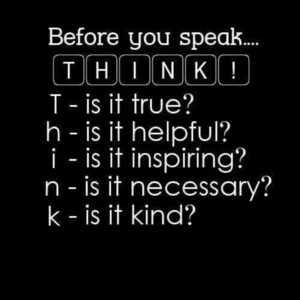| Throughout the last three years’ of Rav Berlands exile, there were many indications from other leading figures and tzaddikim that the situation facing Am Yisrael was as bleak as indicated by Rav Berland himself. One such person was the kabbalist and Rosh Yeshiva from Bnei Brak, Rav Chaim Dovid Stern. In 2014, Rav Stern told his attendant that the previous year, he’d seen terrible decrees being made in Shemayim in relation to Israel’s enemies – so bad, that he’d even started telling the people who were visiting him that they didn’t need to worry about money any more, and that they should start giving all of their money away to tzedaka, because shortly there would be such a period of chaos and destruction descending on the world that money wouldn’t be worth the paper it was printed on.
Day after day, Rav Stern described how he could see how these decrees were gathering steam – until Rav Berland decided to take upon himself the terrible shame and criticism, and to leave Eretz Yisrael and go into exile abroad. According to Rav Stern, Rav’s Berland self-sacrifice is what cancelled these terrible decrees. He continued that if there had been a tzaddik before World War II who’d have taken such harsh suffering upon himself, then there wouldn’t have been a holocaust. Unfortunately, none of the Tzaddikim who were alive at that time could have withstood such a difficult test. When Rav Stern heard from one of his yeshiva students how Rav Berland had been praying alone for hours in the African jungle, in places where no other person would come without an armoured jeep and a gun, Rav Stern said: “It’s because of his incredible kedusha! The animals don’t have any permission to harm him – not the animals, and also not the human beings!” Over the last three years, Rav Stern has spoken out about Rav Berland on many different occasions. When he was giving a pep talk at the Chut Shel Chesed Yeshiva to the students of Rav Shalom Arush, Rav Stern gave over the following serious warning: “Woe to whoever speaks ill of Rav Berland, for they will be punished severely. All those who dare to speak ill of this tzaddik should fear for their lives, for they will all, without exception, receive severe punishments from Above. I knew him 40 years ago, and the way he learned with the Steipler was unmatched by any other. He is entirely holy.”
On another occasion, he said: “The final test before Moshiach comes is Rav Berland. Anyone who talks against him, or who believes the rumours being circulated about him, won’t merit to witness the imminent redemption of our people.” Around the time that Rav Berland was detained in Holland, on his way to Uman just before Rosh Hoshana, Rav Stern told Rav Shalom Arush that the people who were slandering the Rav and spreading rumors about him should make some serious Teshuva, if they wanted to avoid the terrible fate that would otherwise await them. Rav Stern said: “I believe that Rav Berland could even hold his hand in the fire, and not be burned! [because of his high level of holiness].” (That’s actually what happened in Johannesburg on one occasion, when the Rav was reciting havdalah together with his followers, and realized that some of them were struggling with serious doubts and confusion about where the truth lay, in relation to the false accusations that had been made about him. After he’d said havdalah, the Rav placed his hand in the flame of the burning candle, and held it there for a good while, without his hand being at all burnt. The Rav turned to his confused followers and told them: “Don’t let all the suspicions and the rumors burn you up!”) Rav Stern concluded: “The whole subject involving Rav Berland’s exile is connected to the deepest secrets of the redemption of Am Yisrael.” |
Stop the Lashon haraLashon hara From Wikipedia, the free encyclopedia
The Hebrew term lashon hara (or loshon hora) (Hebrew לשון הרע; “evil tongue”) is the halakhic term for derogatory speech about another person.[4] Lashon hara differs from defamation in that its focus is on the use of true speech for a wrongful purpose, rather than falsehood and harm arising. Speech is considered to be lashon hara if it says something negative about a person or party, is not previously known to the public, is not seriously intended to correct or improve a negative situation, and is true. Statements that fit this description are considered to be lashon hara, regardless of the method of communication that is used, whether it is through face-to-face conversation, a letter, telephone, or email, or even body language. Lashon hara (lit. “evil tongue”) is considered to be a very serious sin in the Jewish tradition. The communicator of Lashon Hara (and rechilut) violates the prohibition of “Lo telech rachil b’ameicha (Leviticus 19:16).”[5] By contrast, hotzaat shem ra (“spreading a bad name”), also called hotzaat diba, or motzi shem ra (lit. “putting out a bad name”) consists of untrue remarks, and is best translated as “slander” or “defamation”. Hotzaat shem ra is worse, and consequentially an even graver sin, than lashon hara.[4] And the act of gossiping is called rechilut, and is also forbidden by halakha.[4] |
Laws of Lashon HaraParshat Behaalotechahttp://www.chabad.org/library/article_cdo/aid/922039/jewish/Laws-of-Lashon-Hara.htm By Aryeh Citron When Miriam spoke negatively about her brother, Moses, she was rebuked by G‑d and afflicted with the skin disease of tzaraat as a punishment. Due to Moses’ prayers, she was cured soon after, but still needed to remain outside of the camp for seven days.1 Aaron, who had listened to her negative speech without protesting, was also punished, but not as severely.2 Unfortunately, the spies who were sent soon afterwards to Israel did not take a lesson from this story, and they too spoke negatively—about the land of Israel. The result was that the Israelites of that generation all died in the desert. The idolatrous armies of King Ahab were successful in their battles, because they did not have the sin of lashon haraIn fact, we find that lashon hara, negative talk, is a sin that has caused numerous tragedies for the Jewish people, and indeed the world, since the very beginning of history. Some examples of this are:
The laws of lashon hara are too lengthy to include in one article. In fact, Rabbi Israel Meir Hakohen of Radin wrote an entire book about these laws. The book is called Chafetz Chaim (which caused the author to be known as the “Chafetz Chaim”) too. The name is inspired by the verse in Psalms, “Whoever of you desires life (chafetz chaim) . . . guard your tongue from evil . . .”10 Nevertheless, here is a brief overview of some of the laws, mostly gleaned from Chafetz Chaim:
Footnotes |


















































